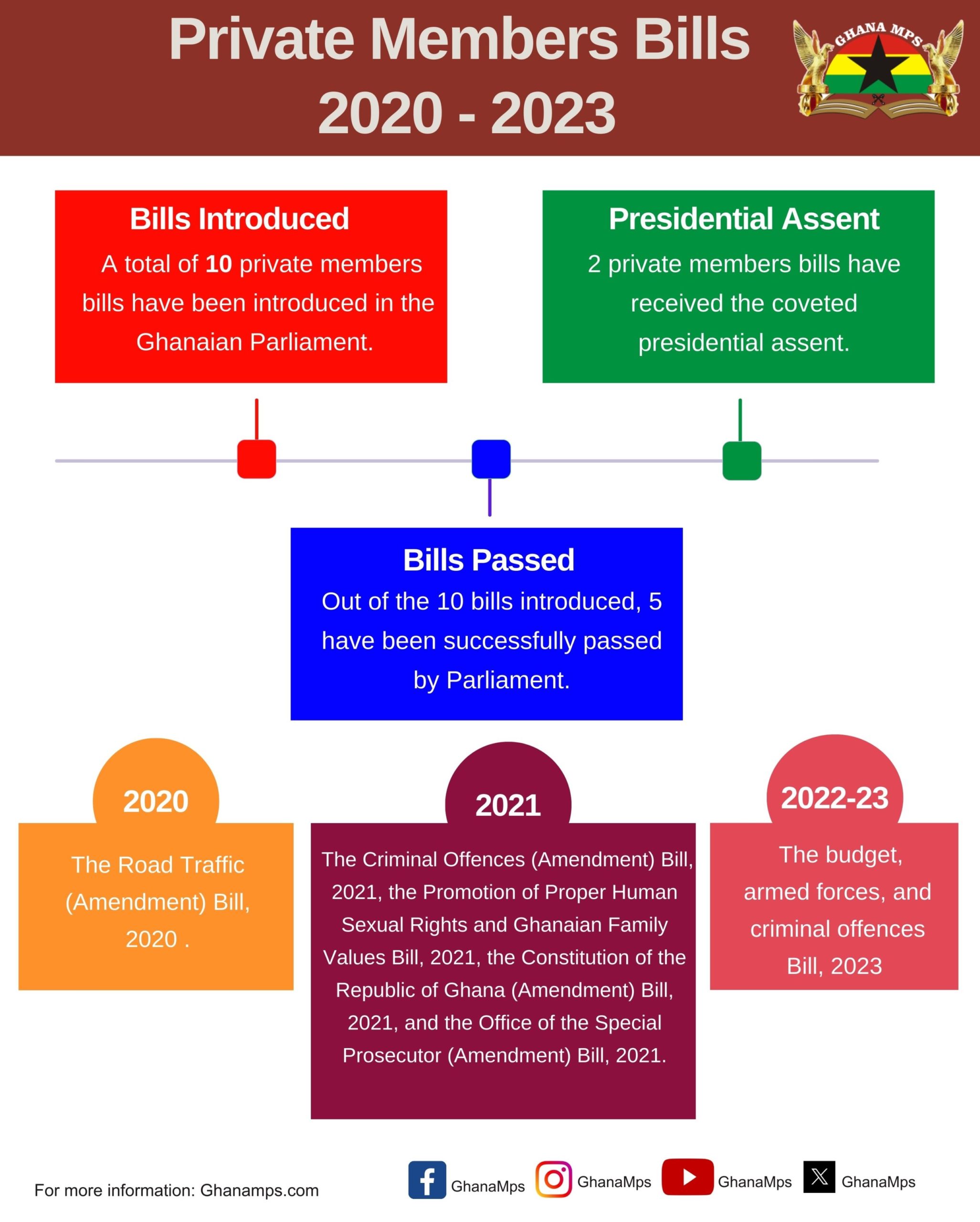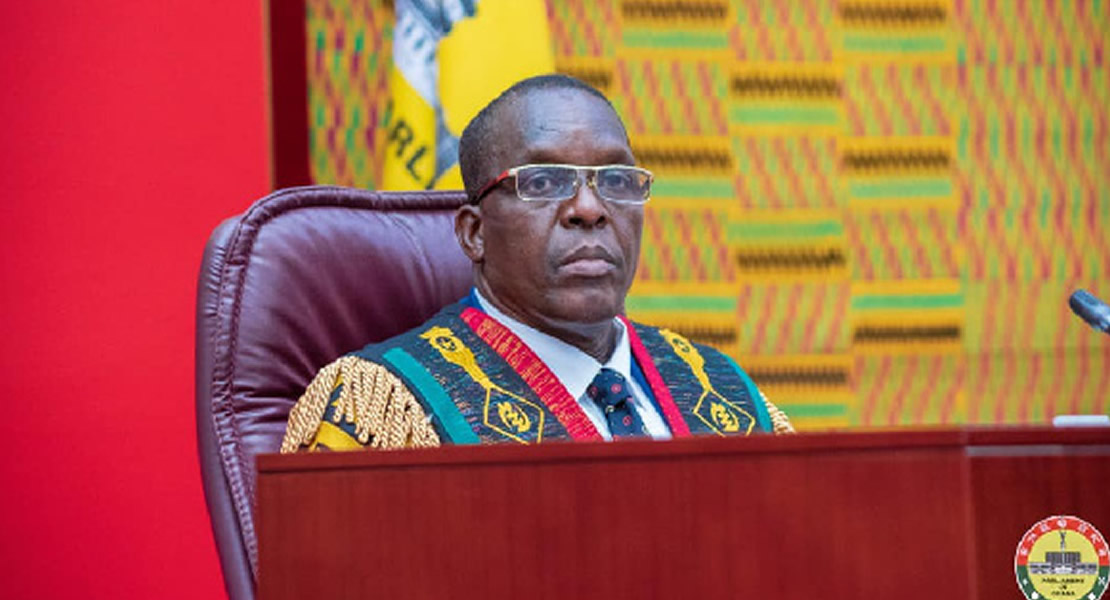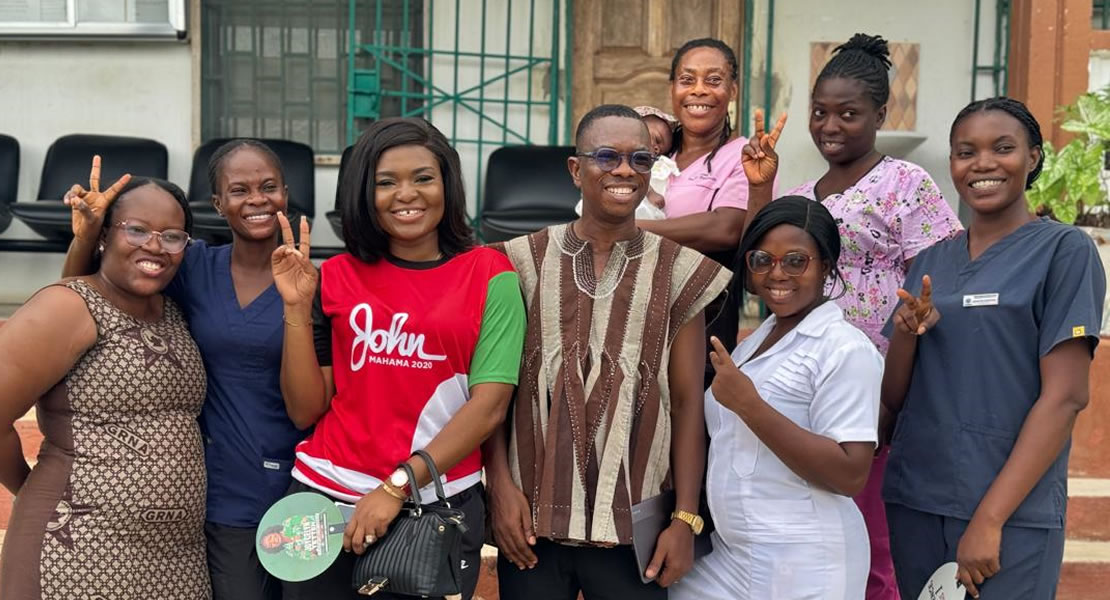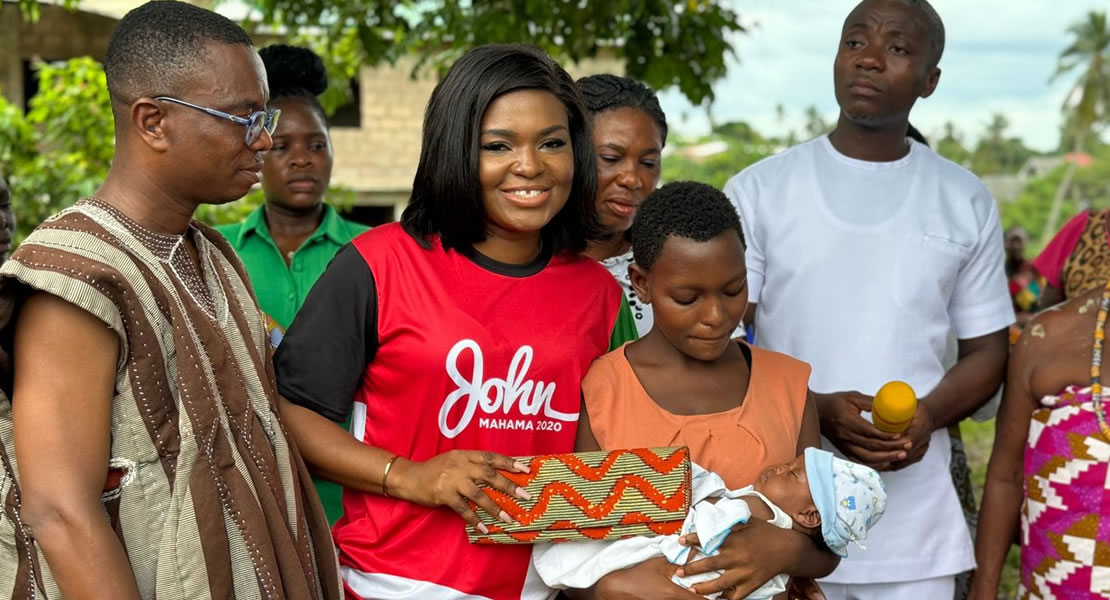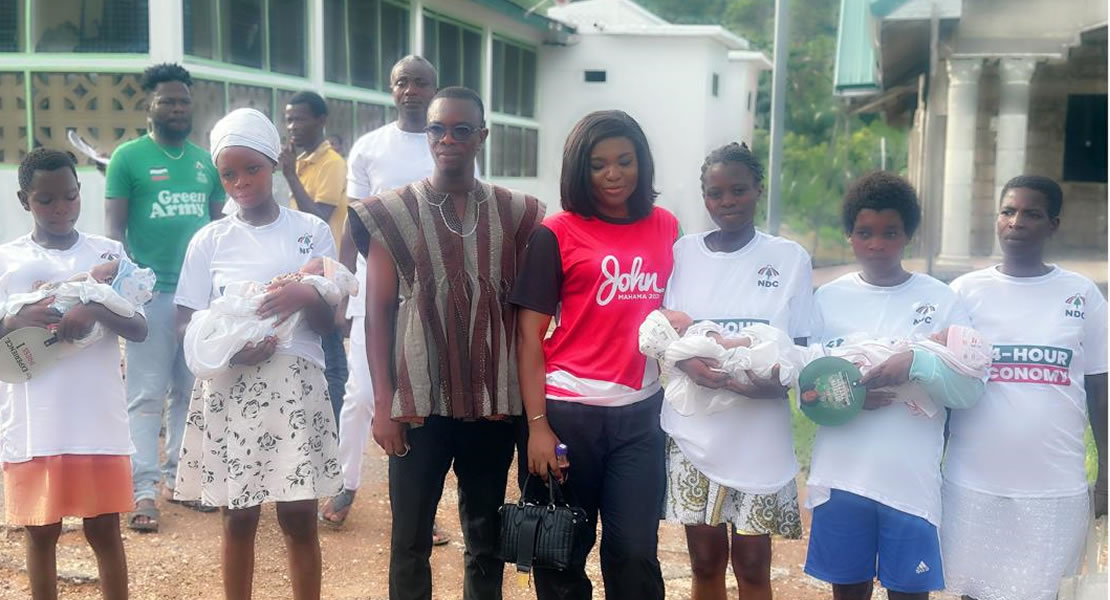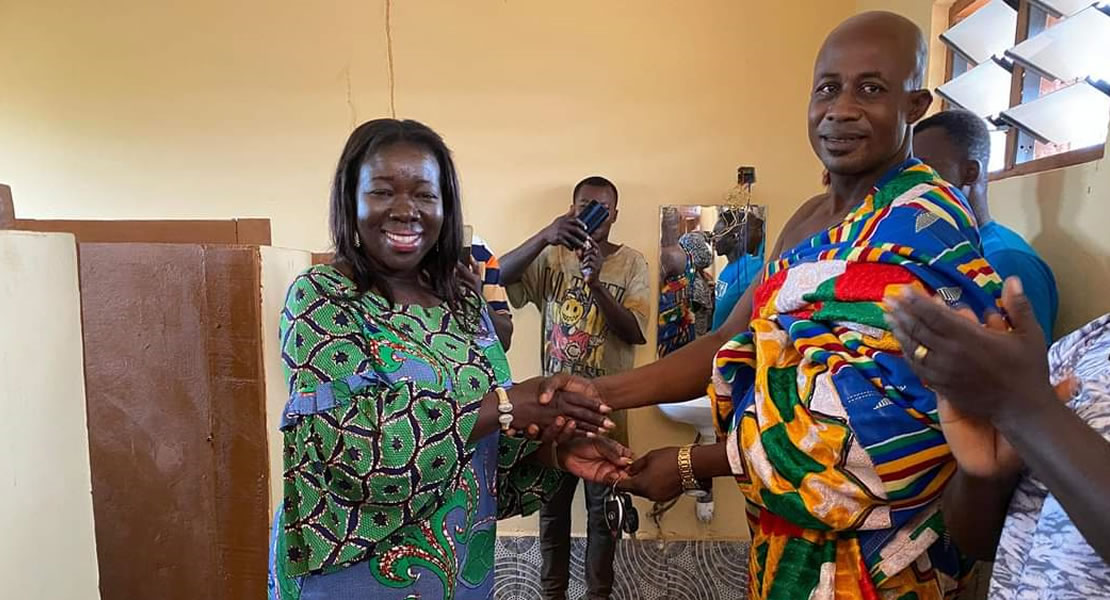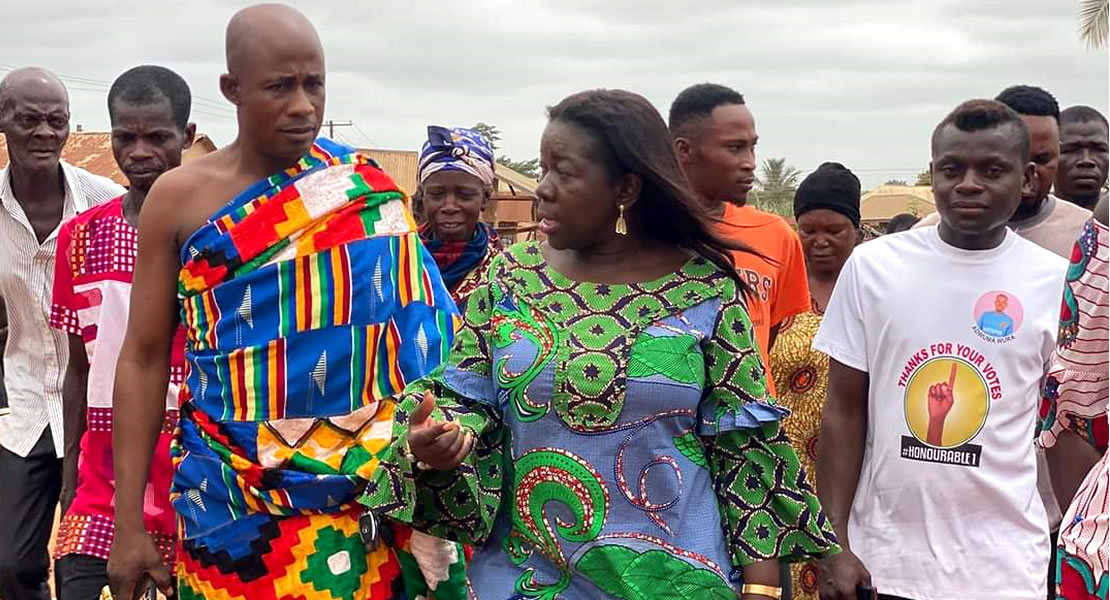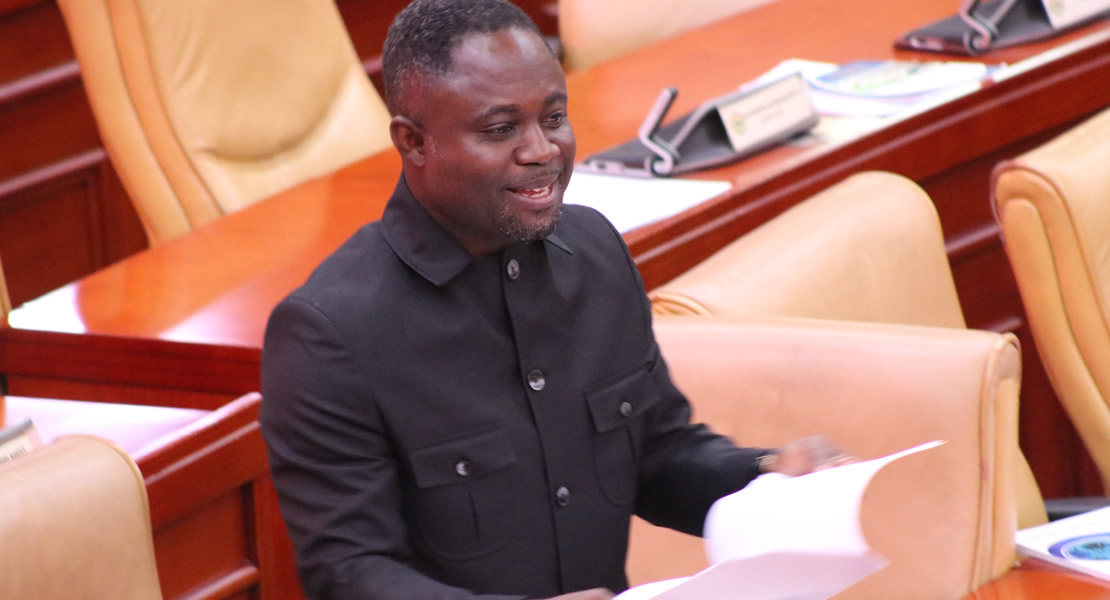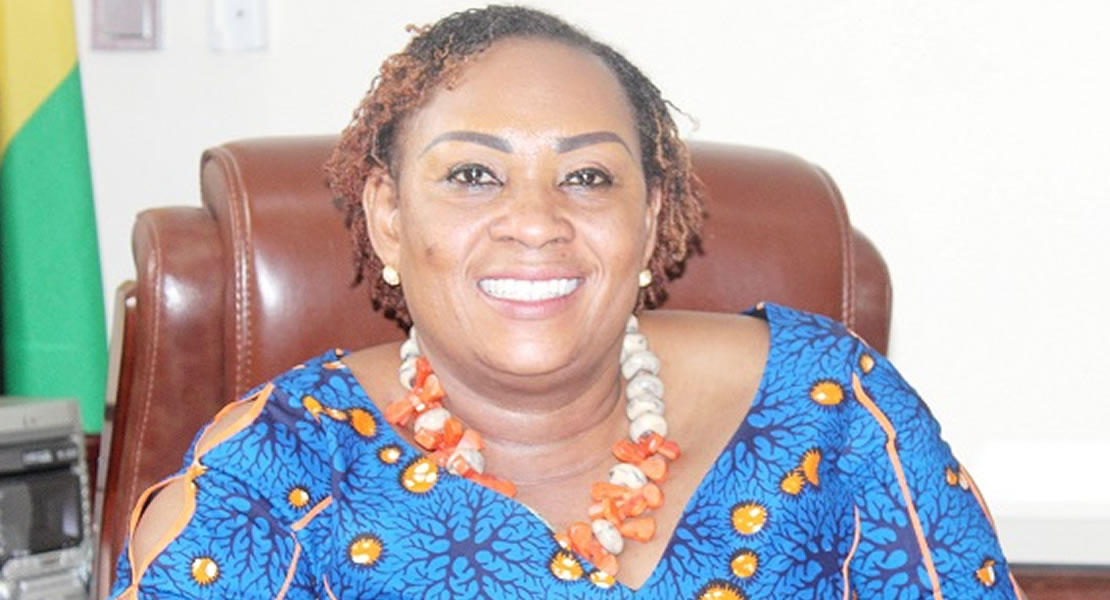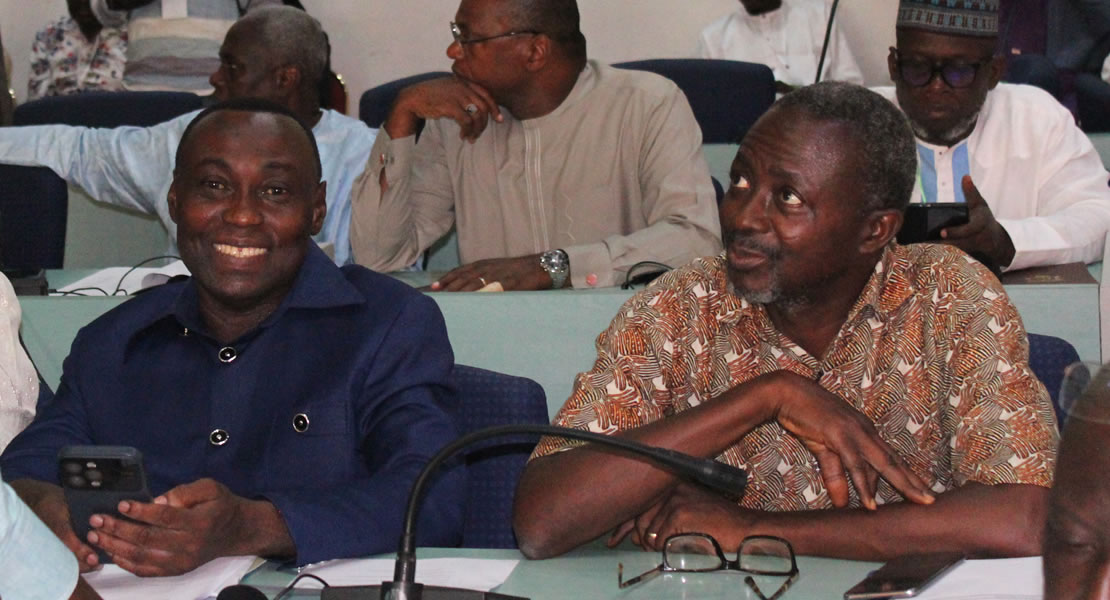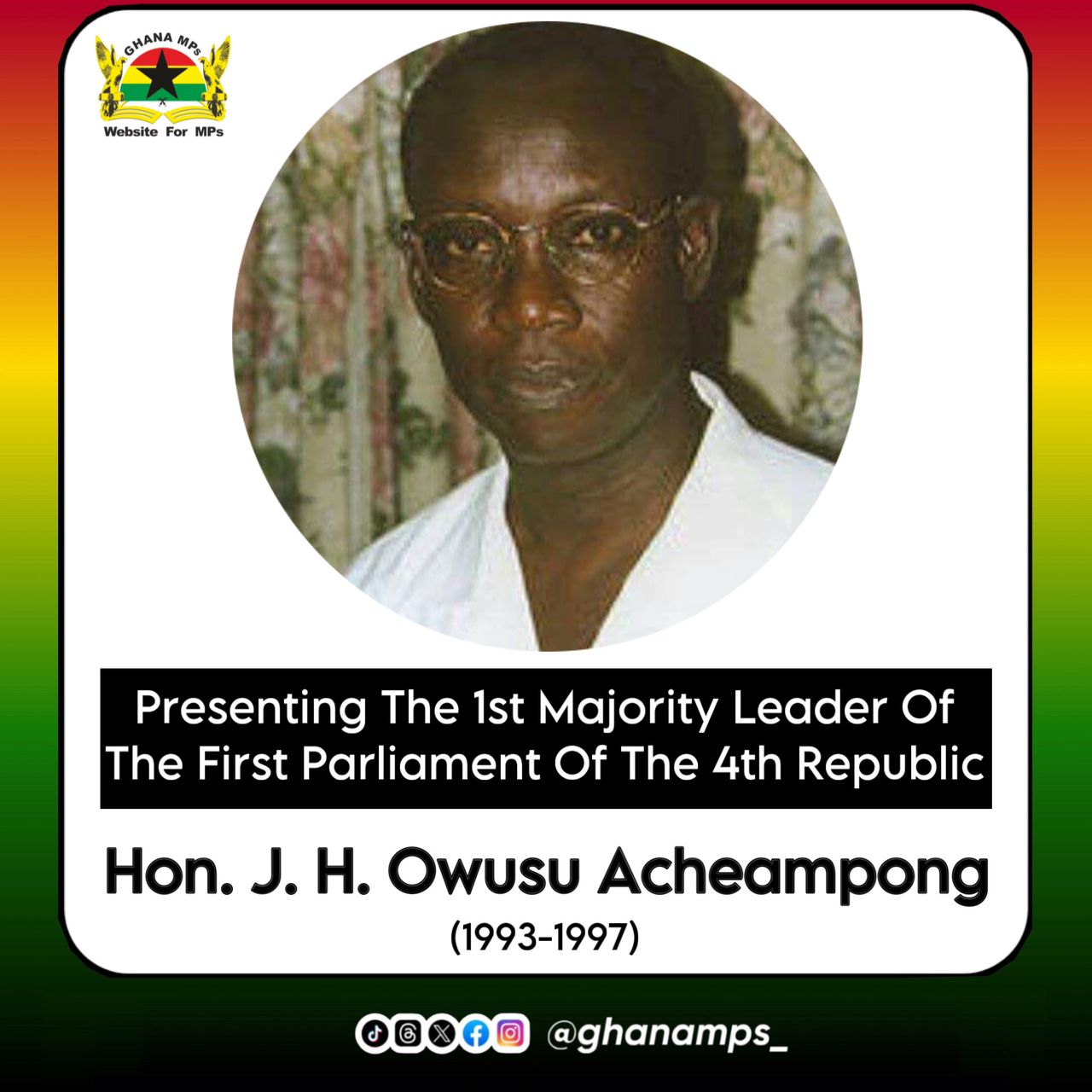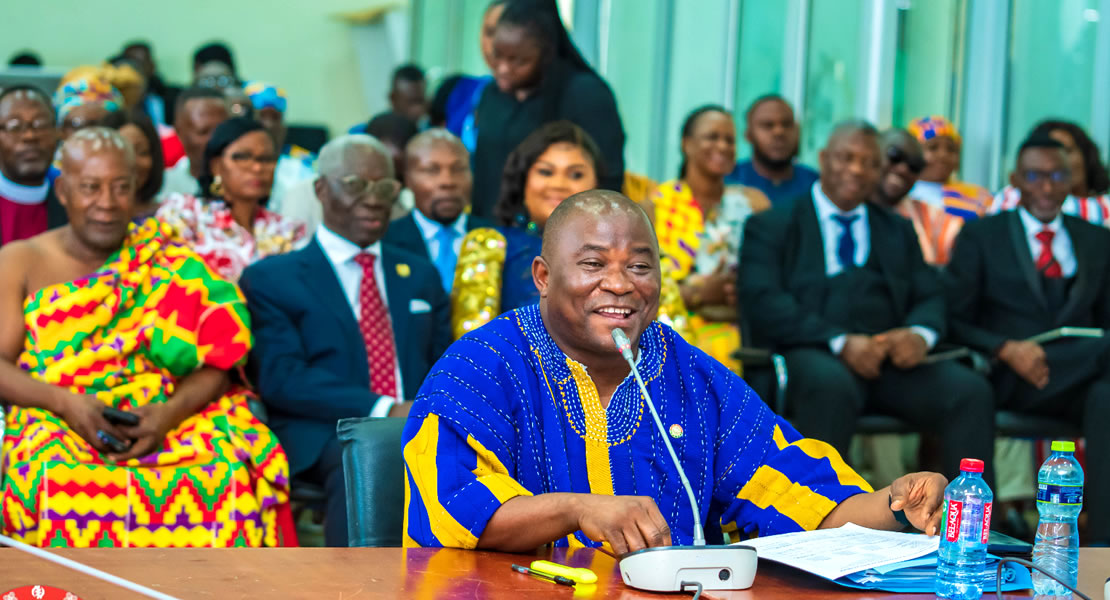In recent years, Ghana’s legislative landscape has witnessed a significant surge in activity from non-executive legislators, marked by the introduction of ten Private Members’ Bills since July 2020. These bills, proposed by members of parliament not acting on behalf of the executive branch, highlight the proactive efforts of individual lawmakers to influence national policy and address specific issues within the Ghanaian society.
Since July 2020, a total of ten Private Members’ Bills have been introduced in Parliament, spanning a variety of subjects from road safety to criminal justice reform. Of these, five bills have successfully passed through Parliament, with two receiving presidential assent, thereby becoming law.
Key Legislative Initiatives
2020
- Road Traffic (Amendment) Bill, 2020: This bill aimed to enhance road safety regulations and address gaps in the existing traffic laws. It was one of the notable successes among Private Members’ Bills, securing both parliamentary approval and presidential assent.
2021
- Criminal Offences (Amendment) Bill, 2021: Another significant bill which sought to update and strengthen the provisions of the criminal code. This bill also received presidential assent, underscoring its importance in the legislative agenda.
- Promotion of Proper Human Sexual Rights and Ghanaian Family Values Bill, 2021: This controversial bill aimed to uphold traditional family values, sparking widespread debate across the country.
- Constitution of the Republic of Ghana (Amendment) Bill, 2021: Proposed changes to the nation’s supreme law to reflect contemporary governance needs.
- Office of the Special Prosecutor (Amendment) Bill, 2021: Sought to amend the framework governing the Office of the Special Prosecutor to enhance its efficiency and effectiveness.
2022
- Earmarked Funds Capping And Realignment (Amendment) Bill, 2022: Focused on financial reforms to optimize the use of earmarked funds within the national budget.
- Criminal Offences (Amendment) Bill, 2022: Aimed at further reforms in criminal law, reflecting ongoing efforts to modernize legal frameworks.
- Armed Forces (Amendment) Bill, 2022: Proposed updates to the laws governing the armed forces to improve military administration and operations.
2023
- Budget Bill, 2023: Introduced to outline the government’s financial plan and expenditure for the fiscal year, reflecting an essential aspect of parliamentary oversight and financial governance.
The past few years have seen a notable rise in the introduction and passage of Private Members’ Bills in Ghana, reflecting a vibrant and dynamic parliamentary process. As legislators continue to bring diverse issues to the forefront, the impact of these efforts will be felt across various sectors of society, contributing to the ongoing development and governance of the nation.
Ghanamps.com/Shang Annang Papa Nii
